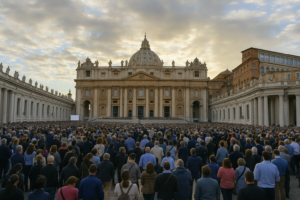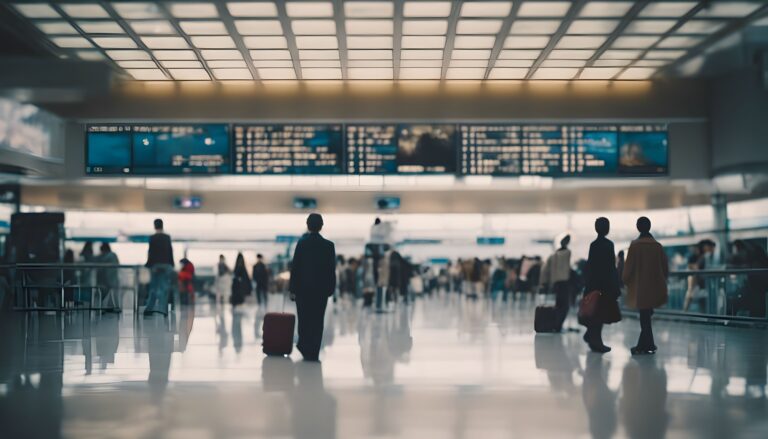Pope Leo XIV Ushers in a New Era for the Catholic Church
In an event that has stunned the world and redefined the global face of the Catholic Church, Robert Francis Prevost, a 69-year-old cardinal from Chicago, Illinois, was elected as the first American pope on May 8, 2025. Assuming the name Pope Leo XIV, his appointment marks a historic and symbolic turning point for Catholicism, reflecting the Church’s evolving global identity. The election took place during a solemn and sacred papal conclave following the death of Pope Francis, who passed away on April 21, 2025. Thousands of faithful packed St. Peter’s Square to witness the traditional Habemus Papam declaration, which introduced a pope unlike any before him—American-born, missionary-experienced, and globally engaged. This article provides a well-rounded, detailed look at the life, rise, significance, and early outlook of Pope Leo XIV, exploring how his leadership is poised to shape the future of the Catholic Church.
Who Is Robert Prevost?
Born on September 14, 1955, in Chicago, Robert Prevost grew up in a devout Catholic family. He joined the Order of Saint Augustine (O.S.A.) and was ordained to the priesthood in 1982. After earning advanced degrees in theology and canon law in Rome, he dedicated much of his early career to missionary work in Peru. In Peru, Prevost was known for his compassionate leadership, commitment to indigenous communities, and fluency in Spanish. His service was rooted in social justice, community building, and pastoral care. Eventually, he became the Bishop of Chiclayo, a significant diocese in northern Peru, where he remained deeply engaged with both clergy and laity. His unique profile—a North American with Latin American pastoral experience—earned him broader recognition within the global Church.
Vatican Service and Rise in Leadership
In 2023, Pope Francis appointed Prevost as the Prefect of the Dicastery for Bishops, a crucial Vatican office that oversees bishop nominations and plays a significant role in global Church governance. The position allowed him to become one of the most influential voices in the Catholic hierarchy, helping to select future bishops and influence pastoral direction worldwide. He was known for promoting inclusive leadership, supporting transparency, and prioritizing bishop candidates who embraced Pope Francis’s pastoral approach—particularly on issues like environmental stewardship, poverty, and immigration. This administrative and spiritual background prepared Prevost for a higher calling. His reputation as a reformer and pastoral figure elevated him to papabile (a potential pope) status in the eyes of many Vatican watchers.
The Death of Pope Francis and the 2025 Conclave
The Catholic world entered mourning on April 21, 2025, when Pope Francis died after twelve years as a transformative and sometimes controversial figure. His papacy was marked by compassion, reform, and a shift in Church priorities toward the margins of society. In the days that followed, 133 eligible cardinal electors under the age of 80 traveled to Rome to participate in the secret conclave. The voting began within the Sistine Chapel, under the solemn gaze of Michelangelo’s frescoes, following rituals passed down over centuries. On the fourth ballot, white smoke emerged from the chapel’s chimney, signaling that a new pope had been chosen. Just before 8 p.m. Rome time, Cardinal Dominique Mamberti announced the words, “Habemus Papam!” to a waiting world.
A Historic Announcement: Pope Leo XIV
Robert Prevost appeared on the central balcony of St. Peter’s Basilica, smiling humbly as he greeted the crowd. Taking the name Pope Leo XIV, he became the 267th successor of St. Peter and the first pontiff from the United States in history. The name “Leo” was a deliberate choice, echoing Pope Leo XIII, who reigned from 1878 to 1903 and is remembered for his strong promotion of Catholic social teaching, especially in his landmark encyclical Rerum Novarum. By aligning himself with this legacy, Leo XIV signaled a pontificate likely to emphasize social justice, worker rights, and global solidarity.
Why an American Pope Matters
The significance of an American pope cannot be overstated. For centuries, the papacy was dominated by Italians and Europeans. While globalization has shifted the Church’s demographics—over 60% of Catholics now live in Latin America, Africa, and Asia—the Vatican hierarchy has been slower to adapt. Prevost’s election represents not just a national milestone for the United States, but a symbolic shift in the Church’s priorities. His missionary background and global engagement highlight an inclusive and international future for Catholicism. His deep connections to both North and South America may also strengthen unity among the diverse and sometimes divided global Catholic communities. For American Catholics, this is a moment of pride and responsibility. For others, it is a sign that the Church is more willing to embrace non-European leadership.
Pope Leo XIV’s First Address
In his Urbi et Orbi address—Latin for “To the City and to the World”—Leo XIV delivered a heartfelt message of hope, reconciliation, and renewal. He acknowledged the legacy of Pope Francis, praised the strength of global Catholic communities, and called for a Church more open to “listening, serving, and uniting.” Key themes of his address included: A commitment to interfaith dialogue, an emphasis on environmental stewardship, compassionate responses to refugees and the poor, and the importance of ecclesial reform and transparency. The pope’s words were measured but powerful, revealing a man committed to a bridge-building papacy.
Vision for the Church Under Pope Leo XIV
Continuing the Spirit of Reform
Leo XIV has inherited a Church in flux. The reforms initiated by Pope Francis—such as curial restructuring, lay empowerment, and emphasis on synodality—are likely to continue. The new pope is expected to maintain momentum in modernizing Church governance, especially in areas related to finance and accountability.
Addressing Scandal and Restoring Trust
Ongoing scandals involving sexual abuse and financial mismanagement continue to haunt the Church. Leo XIV is seen as someone who will continue pushing for zero tolerance, survivor justice, and the institutional healing necessary to rebuild moral authority.
Strengthening the Global South
Given his missionary work and Latin American ties, Pope Leo XIV is well-positioned to support growth in developing regions. He is expected to focus on local leadership development, theological education, and humanitarian partnerships in countries where Catholicism is expanding.
Engaging with Modern Society
Leo XIV’s global background equips him to engage with challenges like climate change, inequality, and secularism. His papacy could become a moral voice for global cooperation on existential threats affecting humanity.
A Balanced Pontificate Ahead?
While he is often described as moderate to progressive, Pope Leo XIV is also respected among traditionalists for his fidelity to Church teaching and liturgical reverence. As such, he may act as a mediator between polarized factions in the Church. Key issues on the table include: the role of women in Church leadership, celibacy requirements for priests, the place of LGBTQ+ Catholics, and further liturgical reforms and traditionalist accommodations. Though immediate doctrinal shifts are unlikely, the tone, openness, and approach Pope Leo XIV adopts will be closely watched.
Global and Political Reaction
United States
The reaction in the U.S. has been celebratory. President Donald Trump, in his second non-consecutive term, congratulated the new pope, calling it a “moment of great pride” for American Catholics. U.S. bishops held special masses and prayer services, many noting the pope’s commitment to social and moral justice.
Latin America
Church leaders across Latin America expressed excitement, especially in Peru, where Prevost had served for over a decade. His familiarity with the region’s culture and challenges earned him deep respect and affection.
Europe and Beyond
Reactions in Europe were mixed but respectful. While some traditionalists have expressed concern over the continuation of reforms, others welcomed Leo XIV’s commitment to unity and peace. Religious and political leaders worldwide emphasized the importance of his inclusive and humanitarian message.
Challenges Facing Pope Leo XIV
Even with a strong start, the new pope faces a set of formidable challenges: membership decline in Western nations, vocations crisis in developed countries, persistent abuse cover-up scandals, growing ideological divides within the clergy and laity, and pressing geopolitical conflicts needing moral leadership. Navigating these issues will require not only spiritual wisdom but also strategic clarity. Early decisions regarding Vatican personnel and future synods may provide insight into his long-term vision.
A Pope for a Global Church
Pope Leo XIV embodies what many believe the Church needs in 2025: a globally-minded shepherd with pastoral roots and administrative strength. As a religious leader, he brings together the American experience, Latin American empathy, and Vatican-level insight. His story is not just one of personal achievement, but of a Church willing to embrace change, diversity, and humility.
Hope in a Time of Transition
The election of Robert Prevost as Pope Leo XIV is more than a historical milestone—it is a defining moment for the Catholic Church in the 21st century. With a background rich in service, humility, and cross-cultural understanding, he steps into his role with widespread hope and cautious optimism. As the world watches the dawn of this new pontificate, the faithful and curious alike will reflect on what it means to have a first American pope and how Pope Leo XIV may guide the Church into a future rooted in justice, unity, and spiritual renewal.
Feel free to check out our other website at : https://scoremaxed.com/











